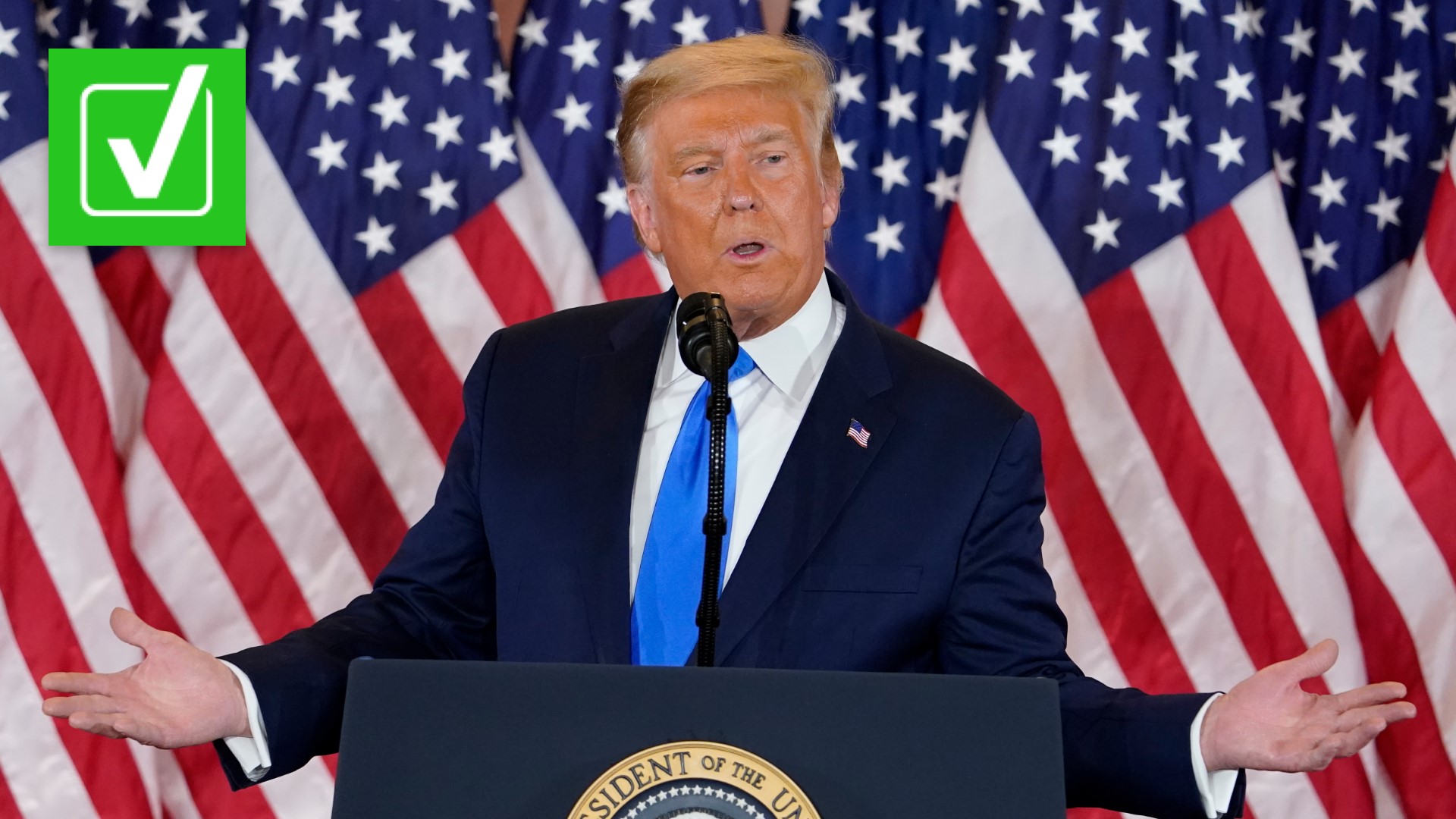WASHINGTON — In the face of an uncertain House of Representatives majority in 2022, a seemingly strange idea has been floated for a new GOP speaker of the House: former President Donald Trump.
We turned to the Constitution to verify whether it's even possible to choose someone who is not a member of Congress to lead the chamber.
THE QUESTION
Can a non-member of the House of Representatives, like Trump, be selected as the speaker?
OUR SOURCES
- "Speakers of the House (1789 to present)", History, Art & Archives of the United States House of Representatives
- "Electing the Speaker of the House of Representatives: Frequently Asked Questions", Congressional Research Service
- U.S. Constitution, Article I, Section II
- Dr. Casey Burgat, Director of the Legislative Affairs program at the Graduate School of Political Management at The George Washington University
THE ANSWER
Yes, technically the House can decide to choose a speaker who is not a member of the House, although it has never been done. This would make it possible for a former president like Donald Trump to be the speaker of the House.
WHAT WE KNOW
Rep. Matt Gaetz (FL-1) in a press conference said that should the Republicans win control of the House of Representatives, he intends to nominate the former president as speaker of the House.
The Verify team has also received emails from people at home wondering the same question. To find out if this is possible, we turned to legislative expert, Casey Burgat, from George Washington University.
He said that the speaker has always been a representative, even though according to the Constitution they technically do not need to be a member of Congress.
"It literally could be anybody," he said. "Congress has a growing history, more recent than not, of choosing folks that are not part of its own membership."
The relevant constitutional language can be found in Article I, Section II, and is written as follows:
“The House of Representatives shall chuse (sic) their Speaker and other Officers,” it reads.
According to the Congressional Research Service, the traditional process begins with each caucus selecting a candidate. The majority party nomination is typically selected without any obstacles, although "other names can also be placed in nomination on the floor." The members then vote on the nominations.
"Members are not required to vote for one of the candidates nominated by each major party (or even for some other candidate formally nominated on the floor)," the CRS report reads. "They may vote for any individual. Although the U.S. Constitution does not require the Speaker to be a Member of the House, all Speakers have been Members. However, some individuals not serving in the House have received votes."
Burgat said that there have been "protest votes" for non-members in the past.
"In 2019, we saw Joe Biden get a vote," he said. "Colin Powel has had a vote. Other members of Congress have had a vote - Stacey Abrams. The list is long and growing of people that don't choose their nominee - the party's nominee."
So we can verify that yes, it is possible for a non-member to be selected as speaker of the House, whether that's Trump, former President Barack Obama, or anyone else.
“This has never been tested to the point where someone has won that nomination where then we have to have this debate," Burgat said. "But as it stands right now, because it hasn't been disproven. The House will choose its own Speaker and other officers."
Burgat said that the lack of qualifications does open the door for some of the more absurd and unlikely scenarios.
"So a baby (as Speaker) is on the table," he said. "Former President Trump is on the table. Potentially a non-citizen is on the table. It's the Wild West."

